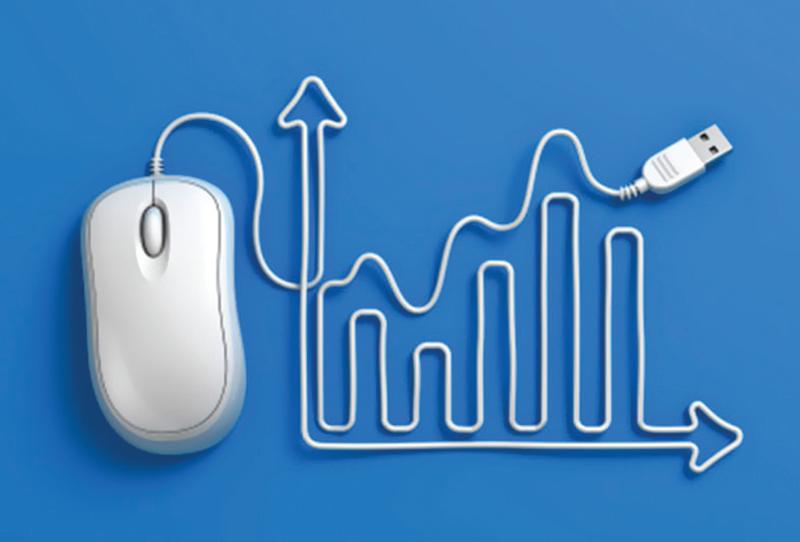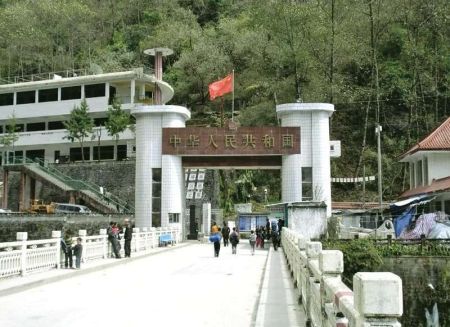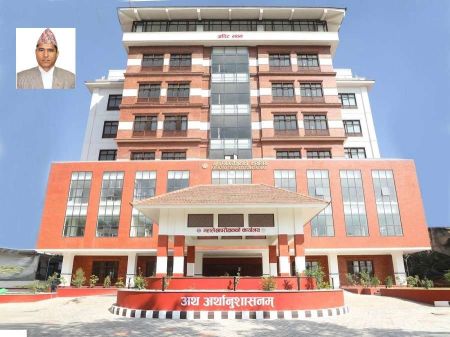Nepal should also work out a plan to adopt the digital economy. The adoption will have a big impact on our economy.
--BY SHASHI RANJAN
Digitalisation is using electronic technology to change texts into electronic forms. We can also say that digitalisation is the process of adopting information technology to generate accurate resources.
Benefits of Digitalisation
• It helps traditional business models to improve business, create customer satisfaction, and have good productivity, etc., by analysing the data of the enterprises
• Automatisation of business enterprises from procurement, production and sales to employees’ payroll etc.
• Ease of scientific research
• Ease of space research
• Communication
• Efficiency and effectiveness in government activities
Some Excellent Examples
• Dematerialisation of shares into electronic form
• Accounting standards from traditional book keeping to computerised system
• Analysis and strategy development from data collection to electronically generating and analysing
• Banking and insurance from pass books to online transactions
• Research from contacting person to person to generating research through electronic means
• Keeping office files to transforming into electronic safety
• From using post offices to emailing and chatting through electronic means
• And many other small and big developments seen day to day
Nepal should also work out a plan to adopt the digital economy. The adoption will have a big impact on our economy not only in terms of imports but also on local working capacity. Digital economy is developing rapidly worldwide. It is the most important tool for innovation, competitiveness and growth, and it holds huge potential for Nepali entrepreneurs, government, and small and medium-sized enterprises. Unfortunately, only a few enterprises are able to take full advantage of the new digital opportunities.
New digital trends such as cloud computing, mobile web services, social media, etc., are rapidly changing the business landscape, reshaping the nature of work, the boundaries of enterprises and the responsibilities of business leaders. These trends enable more than just technological innovation. They spur innovation in business models, business networking and the transfer of knowledge and access to international markets.
The digitalisation of the economy promises to encourage innovation, raise productivity and improve services in various areas, from public safety to agriculture, transportation, healthcare, public service, trade, education, fiscal activities and the environment. It also can be disruptive by transforming organisations’ structures and processes, and results in new business models.
As per 2016 figures from the website Internetworldstats, almost 6.4 million Nepalis are connected to the internet. It is estimated that in the coming years, businesses which fail to get digitally connected will become excluded from the global market.

ADVANTAGES OF GOING DIGITAL
Convenience
The ease of conducting financial transactions is probably the biggest motivator to go digital. You will no longer need to carry wads of cash, plastic cards, or even queue up for ATM withdrawals. It’s also a safer and easier spending option when you are travelling. The benefits are enormous. It will be especially useful in the case of emergencies, e.g. at hospitals. As someone once said, “You will have the freedom to transact whenever and wherever you want. You don’t have to be physically present to conduct a transaction or be forced to do so only during office hours.”
Tracking Records
If all transactions are on record, it will be very easy for people to keep track of their spending. It will also help while filing income tax returns and, in case of a scrutiny, people will find it easy to explain their spending. Besides tax, it will have a good impact on budgeting. Government can also keep a track of all the records of its own and also of the general public.
Minimum Risk
If stolen, it is easy to block a credit card or mobile wallet remotely, but it’s impossible to get your cash back. In that case, the digital option offers limited security. This is especially true while travelling, where loss of cash can cause great inconvenience. Using online transactions or having wallets with biometric ID (finger prints, eye scan, etc), can be extremely difficult to copy, making it a very safe option.
Small Gains
It may not seem like much of an advantage, but being cashless makes it easy to ward off borrowers. Another plus is that you can pay the exact amount without worrying about not having loose change or getting it back from shopkeepers. It is estimated that billions of loose change currency is left over the counter of shopkeepers or are exchanged through chocolates or toffees. This leftover loose change is worth billions of rupees and is unaccounted money. This practice is seen all over the continent.
Safe Documentation
It will be quite easy to keep all your files and records in digital mode. The tension of losing, burning, filing, having separate rooms for storing and then keeping it safe will be reduced in one single digital record. Searching through computers will be easy and keeping track of documentation will gain momentum.
THE DRAWBACKS
Higher Risk of Identity Theft
The biggest fear is the risk of identity theft. Since we are culturally not attuned to digital transactions, even well-educated people run the risk of falling into phishing scams. With the rising incidence of online fraud, the risk of hacking will only grow as more people hop on to the digital platform.
Losing Phones
Since we will be dependent on our phone for all our transactions on the move, losing it can prove to be a double whammy. It can not only make you susceptible to identity theft, but you could also be rendered helpless in the absence of physical cash or any other payment option. This can be especially problematic if you are travelling abroad or in smaller towns or villages with lack of banking infrastructure or other payment options. Another drawback is that you need to keep your phone constantly charged. If the phone dies on you, you will be stranded, particularly if you are in the middle of an important purchase or dealing with an emergency.
Difficult for Tech-Unsavvy
Nepal has a low Internet penetration and not many individual mobile phone users have a smart phone, though the mobile users are huge, with 27.85 million mobile subscribers the smart phone users are quite low. Besides the practical difficulty of going digital, a bigger block is the psychological shift. We are suddenly jumping a few generations when going digital. It’s a problem for the older people, who may suddenly find themselves locked out of their accounts if they can’t download an app or don’t have cash. The digital medium may prove a challenge for the tech-unfriendly people, who will need more time to adapt or the availability of other options to conduct transactions.
Overspending
While there is no denying the convenience of card or mobile wallet transactions, it could open a spending trap for an unsuspecting population. Using cash instead of cards or mobile wallets acts as a natural bulwark for people who find it difficult to control their spending. This is the reason that people could end up overspending, throwing their budgets into disarray.

BENEFITS IN TERMS OF BUSINESS FOR NEPAL
Printed Notes to GO
Nepal being an underdeveloped economy, converting from paper notes to digital payment will have a significant effect in the cost of printing these notes. When digitised, the cost of printing currency will drastically come down with only a few currency notes needed in physical form. Further, the Nepal government should make it mandatory for all schools, colleges, universities, hospitals, etc. to adopt a digital payment system. Further, payment of electricity, water bills and government fees needs to be made digital to have a big impact on the digital payments.
From Paper to Digital Transactions
Storing of documents, photocopying, printing of photographs, online transactions, online applications, online trading, will have a deep impact on going paperless. The imports of paper related items will come down drastically giving a boost to the economy. Nepal Stock Exchange (NEPSE) agreeing to transform physical shares into Demat Form (Dematerialization), financial Institutions encouraging online transactions, etc, are great examples of a digital economy. Diversifying reading books and writing copies into digital methods while taking exams ONLINE and generating results online will save millions of rupees. Online trading platforms should be established rapidly to support digital e-commerce. Online application system will generate e-commerce opportunities.
Tracking Records and Reports
The digital economy will pave the way for tracking records and generating reports in the office itself. This will be more effective and less time cvonsuming. A great example is the website of the government’s Internal Revenue Department where all business transactions are recorded and stored for future reference. Likewise it is quite easy to use and you can obtain necessary details when needed. Malpot (Land Revenue Department) can be brought under the digital plan to ease the sale and purchase of properties.
Employment to Rise
With more ecommerce platforms coming up, employment will rise and education will get a boost. More educated people will join the digital economy.
If properly planned, our country can become a digital economy in a very short time and the effectiveness of a digital economy will be seen and heard. A separate department known as the Digital Department under the Information Technology Ministry can be created to develop the infrastructure and applications. A lot can be done if we are really willing to do it.
The writer is the Managing Director of Ranjan Enterprises.






















